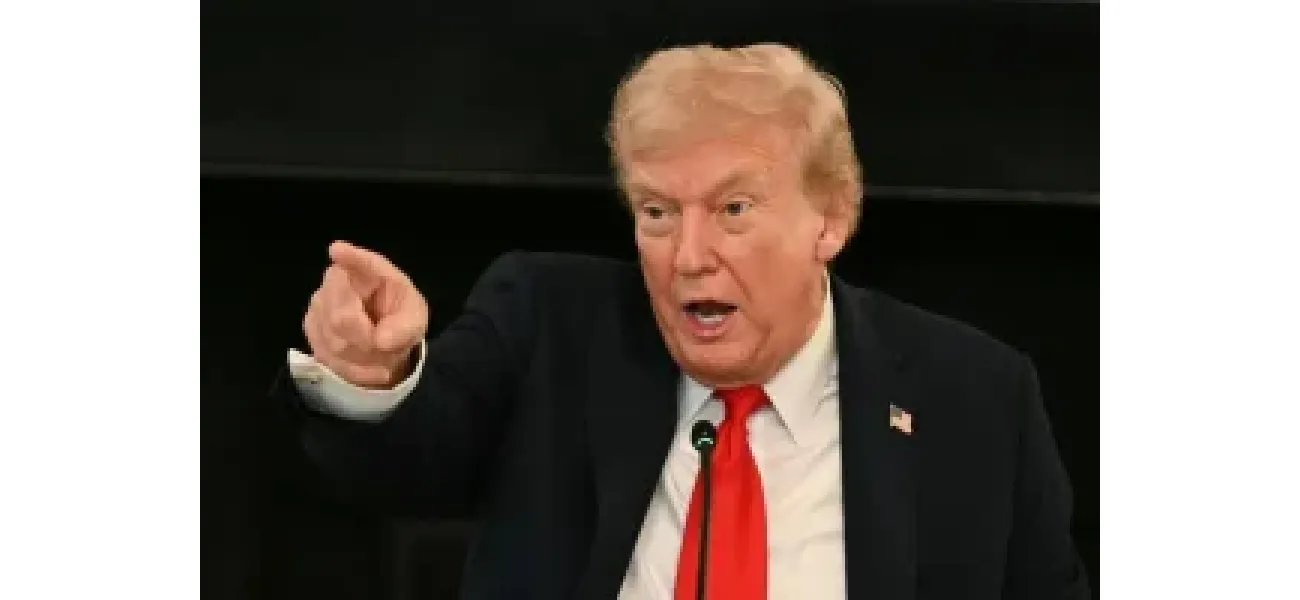A bomb being sent to political opponents of US president Donald Trump sparks fear and condemnation.
Trump orders equal nuclear weapon testing with other countries, sparking shock and fear among global leaders and experts.
November 3rd 2025.

In a shocking move that has caught the attention of world leaders and raised concerns among non-proliferation experts, US President Donald Trump has announced his decision to instruct the Pentagon to conduct nuclear weapon testing "on an equal basis" with other countries. This announcement, which was posted on his social media platform Truth Social, alludes to the possibility of explosive nuclear testing, something that the US has not done since 1992. The timing of this post is also noteworthy as it came shortly before Trump's scheduled meeting with Chinese President Xi Jinping in South Korea. By mentioning "other countries testing programs," Trump seems to be referencing recent Russian military advancements, including the testing of a nuclear-powered underwater drone and a cruise missile capable of carrying nuclear warheads. Russia, like the US, has refrained from nuclear detonation since 1990. Trump's language, using phrases like "equal basis" and "immediately," evokes memories of the Cold War when there was a constant fear of a nuclear arms race.
If Trump's directive does indeed refer to renewed explosive testing, it could potentially lead to retaliatory actions from other nuclear-armed nations, specifically Russia and China, sparking a dangerous and unpredictable arms race. The Comprehensive Nuclear-Test-Ban Treaty, which was signed by 187 nations, was created to prevent such scenarios. While the US signed the treaty in 1996, it has yet to ratify it. However, as a signatory, the US is legally obligated to not act in violation of its spirit and purpose. Nuclear testing was once used to measure the destructive power of atomic and hydrogen bombs, providing valuable information to military planners. But with advancements in technology, such as computer modeling and subcritical testing, live detonations are no longer necessary. The US conducted its last nuclear explosion in 1992, and France stopped in 1996. Russia and China have also refrained from full-scale testing since the 1990s, with North Korea being the only country to conduct such tests in the 21st century.
Trump's announcement comes at a time when global nuclear tensions are at an all-time high. In recent years, major arms control treaties that helped maintain the nuclear order have either collapsed or been abandoned, leaving the New START Treaty, between the US and Russia, as the last remaining pillar of arms control, set to expire in 2026. According to the Stockholm International Peace Research Institute, Russia currently possesses the highest number of nuclear warheads at 5,459, followed by the US at 5,177, and China at approximately 600. All three nations have been investing heavily in advanced delivery systems, such as hypersonic missiles, stealth bombers, and tactical nukes, blurring the lines between conventional and nuclear warfare.
The danger lies not only in the number of warheads but also in the posturing of these nations. Many nuclear states have increased the number of warheads "available for use," those actively deployed or on high alert, which could lead to miscalculations or accidental launches, potentially triggering a catastrophic event within seconds. Trump's call for testing jeopardizes decades of progress towards nuclear restraint and risks normalizing behavior that the international community has worked to outlaw. In response to the US's potential testing, Russia has already revoked its ratification of the CTBT, citing the need to maintain "parity" with the US. If the US proceeds with testing, other nations, including China and North Korea, may see it as a green light to accelerate their own nuclear programs.
The world's nuclear powers are investing in more advanced and deadly delivery systems while simultaneously abandoning the treaties that once restrained them. Trump's latest announcement, made without apparent consultation or clarity, could accelerate this dangerous trend. The US was the first nation to test a nuclear bomb in 1945, and it remains the only country to ever use one in war, with catastrophic consequences. To resume nuclear testing now would not only revive the horrors of Hiroshima and Nagasaki but also put at risk the fragile global consensus that has kept the threat of nuclear destruction at bay for over 30 years.
If Trump's directive does indeed refer to renewed explosive testing, it could potentially lead to retaliatory actions from other nuclear-armed nations, specifically Russia and China, sparking a dangerous and unpredictable arms race. The Comprehensive Nuclear-Test-Ban Treaty, which was signed by 187 nations, was created to prevent such scenarios. While the US signed the treaty in 1996, it has yet to ratify it. However, as a signatory, the US is legally obligated to not act in violation of its spirit and purpose. Nuclear testing was once used to measure the destructive power of atomic and hydrogen bombs, providing valuable information to military planners. But with advancements in technology, such as computer modeling and subcritical testing, live detonations are no longer necessary. The US conducted its last nuclear explosion in 1992, and France stopped in 1996. Russia and China have also refrained from full-scale testing since the 1990s, with North Korea being the only country to conduct such tests in the 21st century.
Trump's announcement comes at a time when global nuclear tensions are at an all-time high. In recent years, major arms control treaties that helped maintain the nuclear order have either collapsed or been abandoned, leaving the New START Treaty, between the US and Russia, as the last remaining pillar of arms control, set to expire in 2026. According to the Stockholm International Peace Research Institute, Russia currently possesses the highest number of nuclear warheads at 5,459, followed by the US at 5,177, and China at approximately 600. All three nations have been investing heavily in advanced delivery systems, such as hypersonic missiles, stealth bombers, and tactical nukes, blurring the lines between conventional and nuclear warfare.
The danger lies not only in the number of warheads but also in the posturing of these nations. Many nuclear states have increased the number of warheads "available for use," those actively deployed or on high alert, which could lead to miscalculations or accidental launches, potentially triggering a catastrophic event within seconds. Trump's call for testing jeopardizes decades of progress towards nuclear restraint and risks normalizing behavior that the international community has worked to outlaw. In response to the US's potential testing, Russia has already revoked its ratification of the CTBT, citing the need to maintain "parity" with the US. If the US proceeds with testing, other nations, including China and North Korea, may see it as a green light to accelerate their own nuclear programs.
The world's nuclear powers are investing in more advanced and deadly delivery systems while simultaneously abandoning the treaties that once restrained them. Trump's latest announcement, made without apparent consultation or clarity, could accelerate this dangerous trend. The US was the first nation to test a nuclear bomb in 1945, and it remains the only country to ever use one in war, with catastrophic consequences. To resume nuclear testing now would not only revive the horrors of Hiroshima and Nagasaki but also put at risk the fragile global consensus that has kept the threat of nuclear destruction at bay for over 30 years.
[This article has been trending online recently and has been generated with AI. Your feed is customized.]
[Generative AI is experimental.]
0
0
Submit Comment





